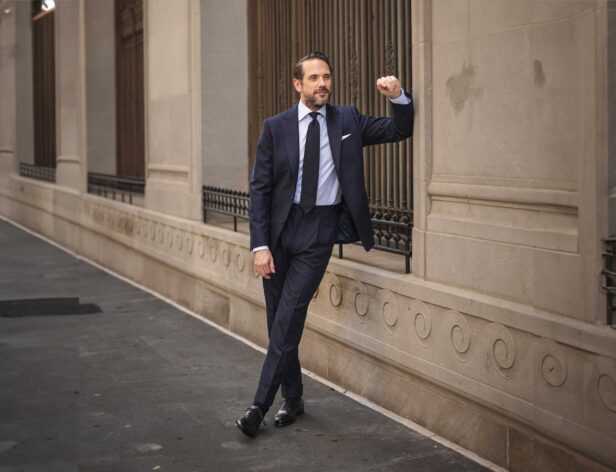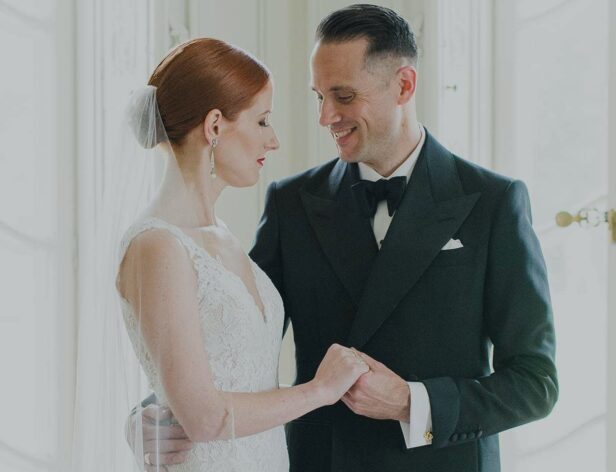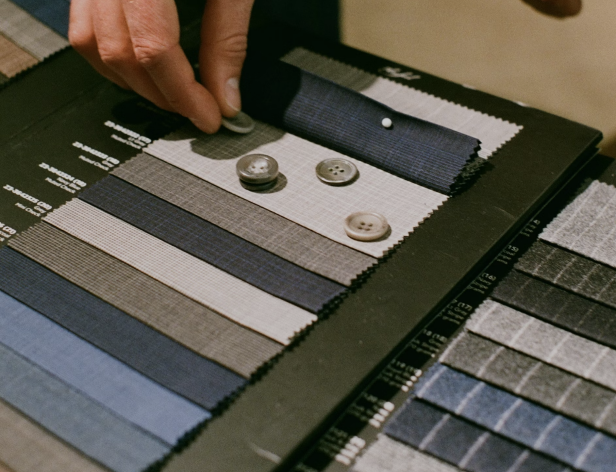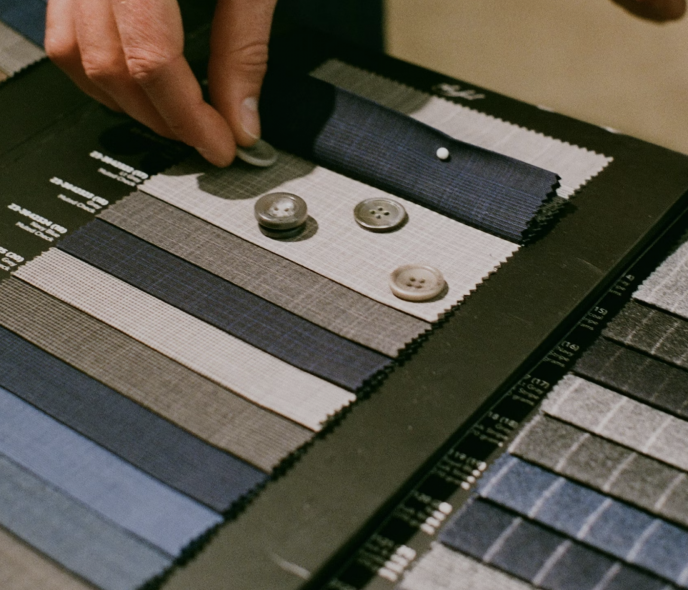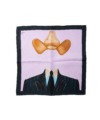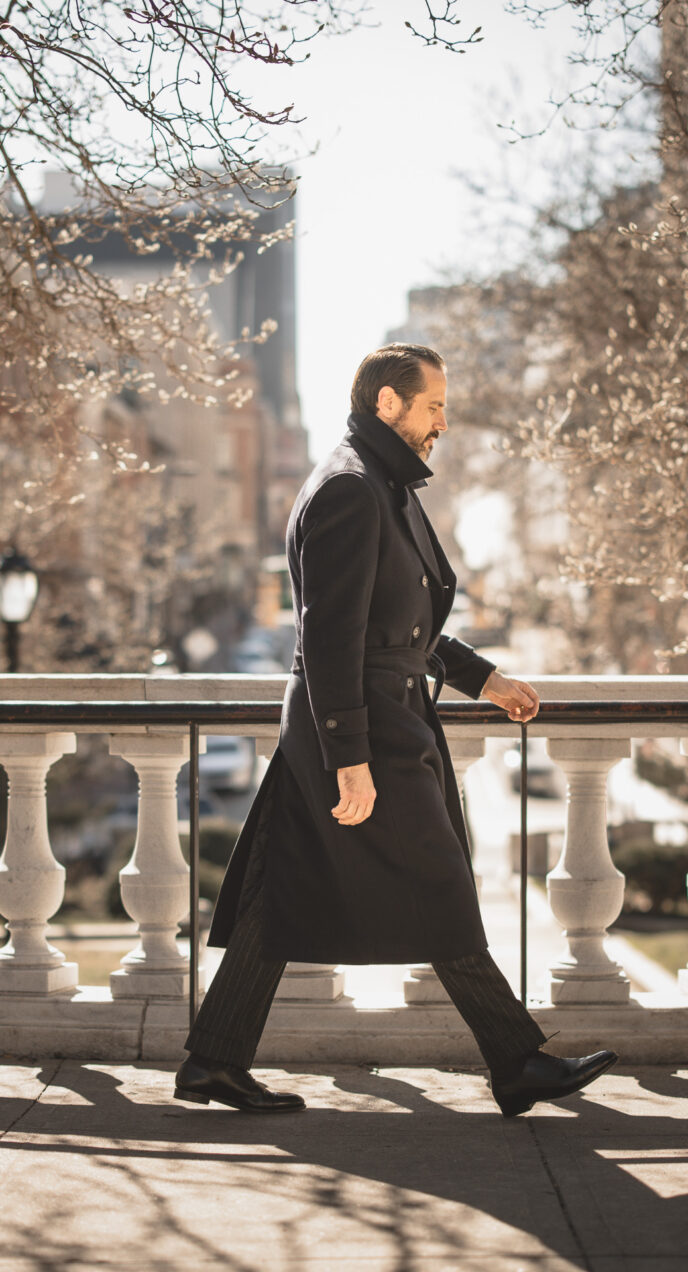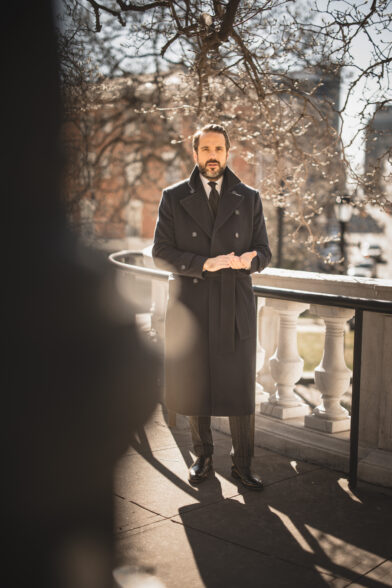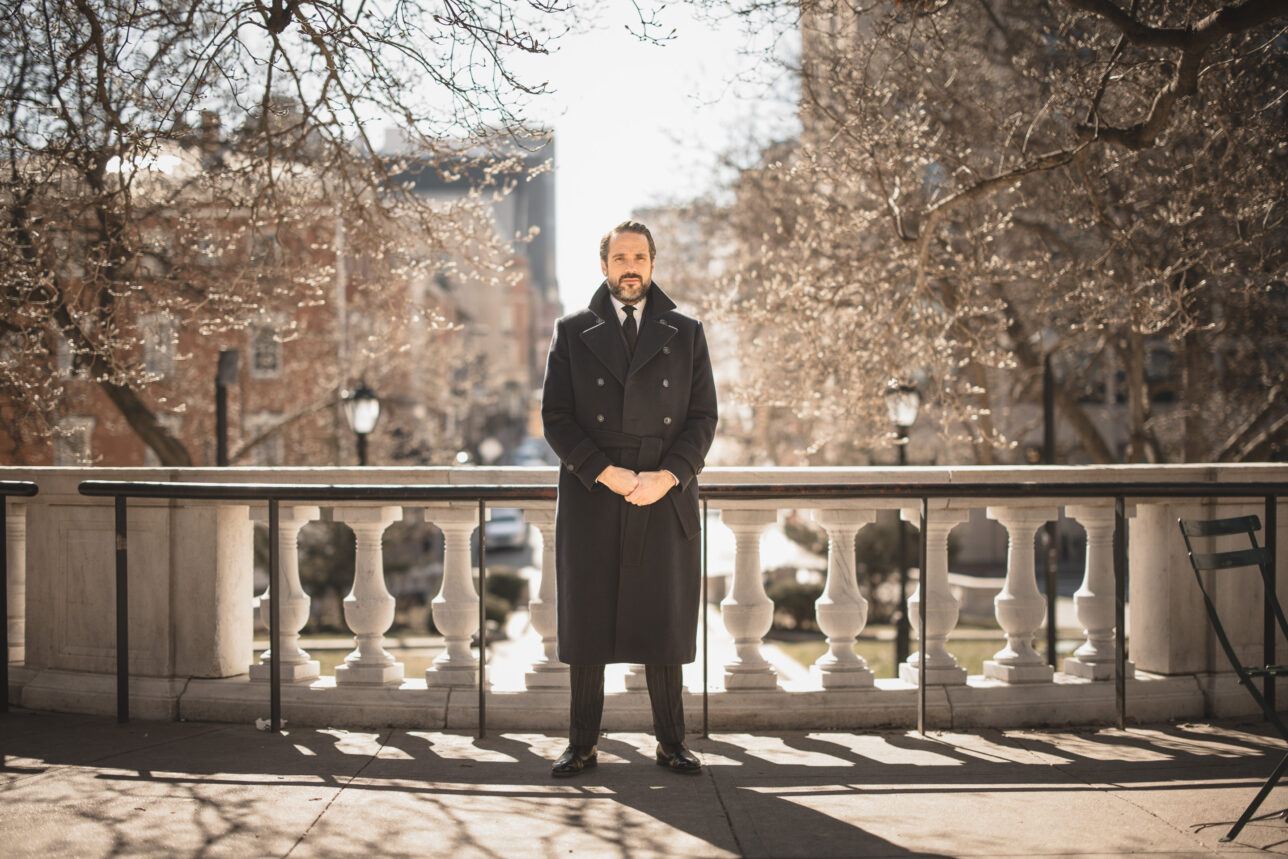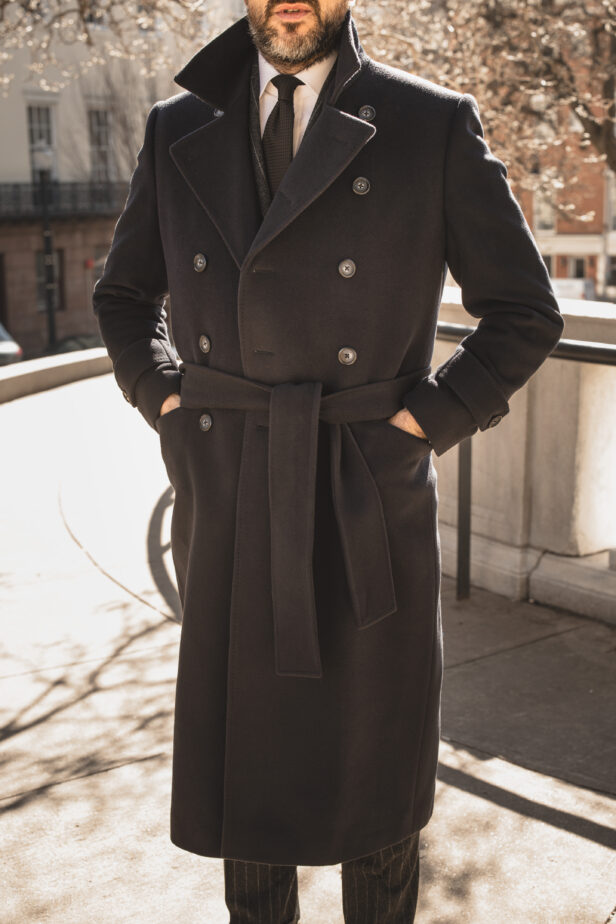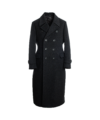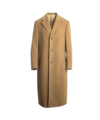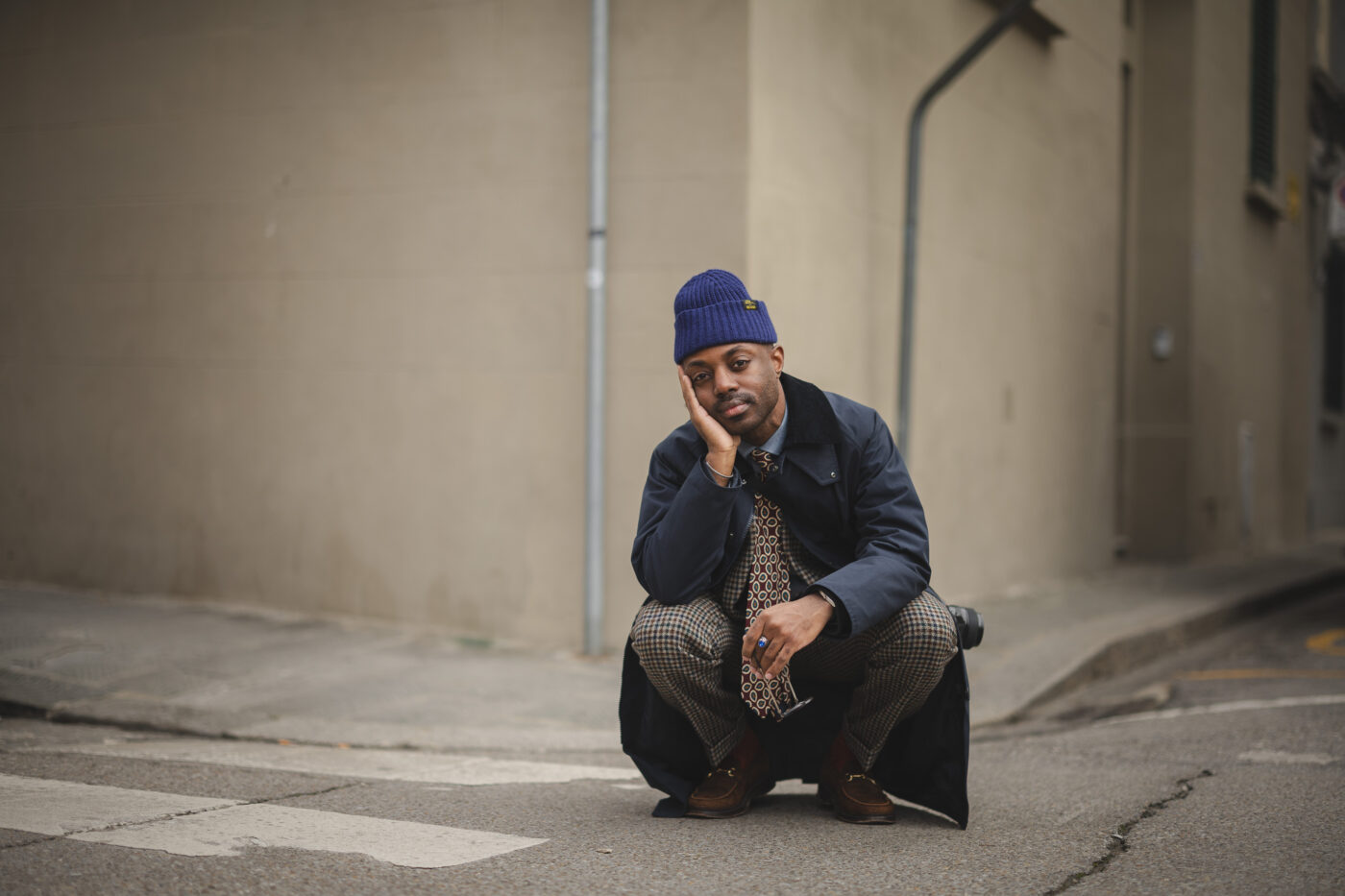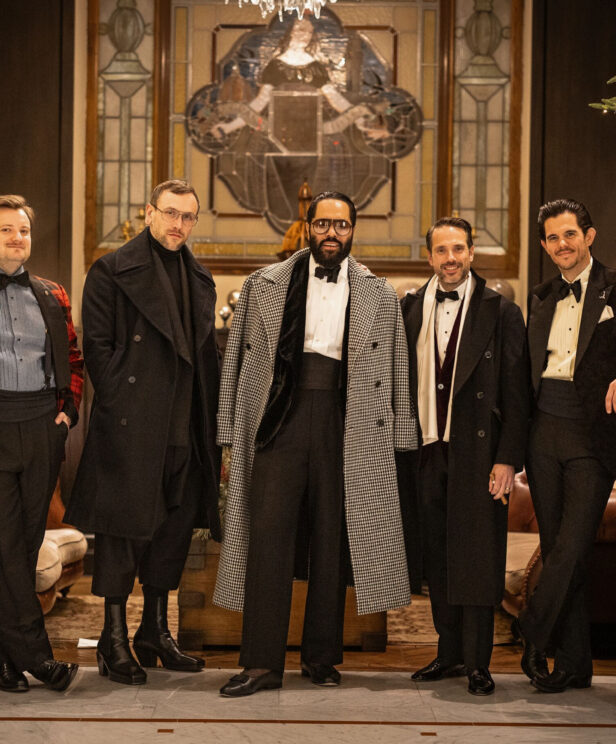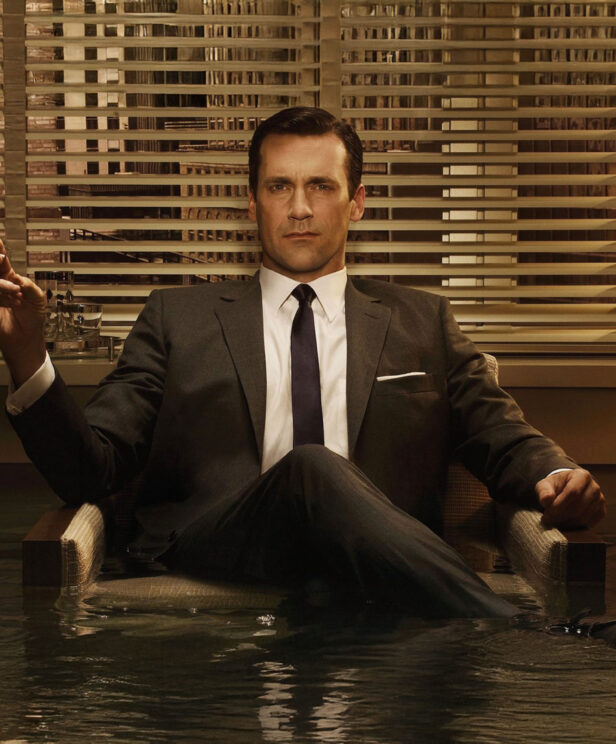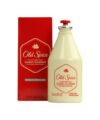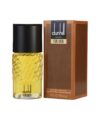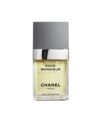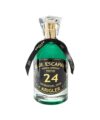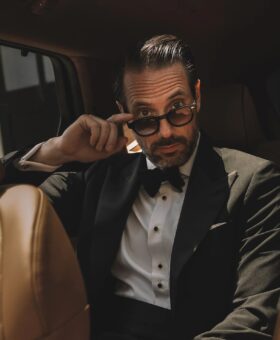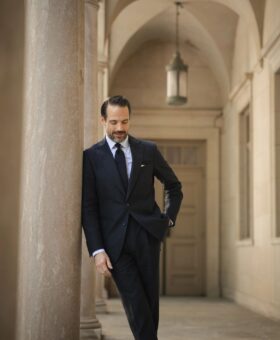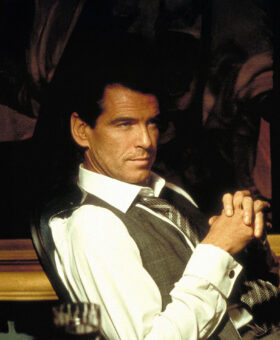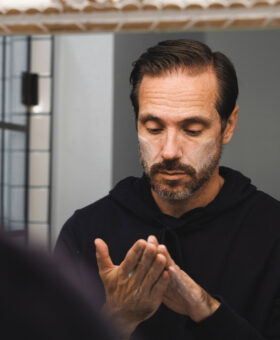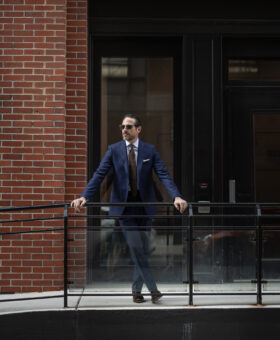Share
Long coats are a staple of classic menswear, especially for those in cold weather climates.
They have form; they have function. Look at any classic picture of New York or Chicago in the winter, and you’ll see virtually every man wearing an overcoat that stretches well below the knee.
Today, however, it seems that for many, long coats have gone the way of the dodo. Overcoats — whether in casual or business wear — tend to stop at or above the knee. Long coats hearken back to an era of classic menswear, and even though they are less common today, there are still many compelling reasons to have one in your wardrobe.
Why Did Men Stop Wearing Long Coats?
The reason men stopped wearing long overcoats that extend past the knee is varied, but a major factor was the rise of the automobile.
Prior to World War II, cities and towns began paving roads to accommodate the explosion of car ownership that began in the 1920s and would continue for decades to come.
The automobile’s effect on long coats was two-fold: First, getting in and out of a car with a longer coat was more difficult, so in the decades that followed, shorter cuts became more popular. Second, part of the utility of the long coat was reduced as more roads were being paved. Men no longer needed to use long coats to keep their suits and clothing underneath clean from mud, dirt, and manure left behind by horse-drawn carriages of earlier eras.
Then there was the U.S.’s involvement in World War II. The U.S. began rationing fabric early in the war as materials such like wool and nylon were needed to produce uniforms and other military supplies.
Men’s suits saw a massive evolution as a result, with double-breasted suits giving way to single-breasted suits, using less fabric. Vests became optional, and overcoats became shorter, with closer fits that reduced the amount of material used.
In the post-war era, the popularity of long overcoats continued to wane. By the 1950s, clothing styles had become more casual, with denim and synthetic materials entering the mainstream. The classic, full-cut look of long overcoats would continue to give way to more tailored, fitted jackets with shorter lengths over the next several decades.
Today, however, men’s clothes are moving back toward more relaxed fits and roomier garments, which means it’s a perfect time to consider refreshing your cold-weather outerwear options.
The Case for the Long Coat
In short (yes, I know) the case for the long coat is its versatility.
A long overcoat, such as our Navy Blue Wool/Cashmere Blend Greatcoat, is going to be a warmer option in the cold weather than a peacoat or other overcoat that ends at or above the knee. They’re also going to be great for a variety of occasions ranging from formal to casual.
In cold weather, the additional length of a greatcoat will help keep the frigid air off your legs, and the double-breasted construction is going to provide additional warmth since there’s more material wrapped around you.
The natural fibers will also regulate temperature as well. This means that because of their construction, they can be worn in a variety of conditions including snowy winter nights and breezy fall daytimes when a lighter coat just won’t do.
Besides temperature, you’ll also find that long coats are also well suited to fit a variety of occasions.
You might most associate them with formal dress, and it’s true that long coats are perfect if you’re heading to a formal event in cold weather. As discussed, the long coat will keep you warm and protect your nice clothes from the elements better than a shorter overcoat.
But long coats aren’t pigeonholed into only being formal wear. While they might not be as casual as other overcoats, they can still easily be dressed down . Our Camel Color Wool/Cashmere Blend Overcoat, for example, can easily be paired with light-wash jeans, a white OCBD, and Chelsea boots, or it can be elevated with a sports coat, turtleneck, and white cotton pants.
Timelessness and Sustainability
There are two additional reasons to add a quality long coat to your wardrobe: timelessness and sustainability.
The roomier (but not oversized) fit of long overcoats means the jacket will drape well from shoulder to calf. Additionally, coats such as the Charcoal Gray or Dark Navy Blue Solid Wool/Cashmere Blend Greatcoat create a silhouette that accentuates the chest and cinches the waistline when the belt is used. This is a classic look that flatters the figure and never looks dated.
Finally, when it comes to sustainability, long coats are king. A high-quality long coat made from wool or cashmere will last for years — decades even — while being a workhorse for your wardrobe each and every winter.
As mentioned, look at any old winter photo of New York or Chicago, and you’ll see men wearing long coats. But just because a clothing item was worn in a bygone era doesn’t make it timeless. That comes down to the fit and silhouette. By design a long coat is classic and another 100 years from now it will still look good. That is what makes them timeless.
